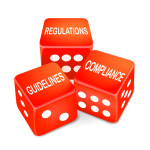Last week I had the pleasure of hearing Dr. Farzad Mostashari speak at a data analytics conference. If his name sounds familiar it’s because Farzad is the National Coordinator for Health Information Technology; more specifically, he is the guy who oversees the development of the meaningful use program. Although it is very difficult in a blog post to convey the passion and charisma Farzad displayed last week, I’d like to share his intriguing perspective about the program here — namely, asking what we would expect an EHR system to deliver to our mom. Out of his parable came several points of emphasis.
Know the patient
Let’s start by knowing the patient. In a paper-based world, what we know about the patient is on display during the six-minute office visit when that paper chart is in our hands (assuming we can locate the chart). We have no access to that paper data silo when mom is in the ER or when she calls her doctor after hours. The first stage of meaningful use helps us know the patient. We know what meds she is taking, what her diagnoses are, and what her lab work reveals.
Do what’s right
When you ask any group of providers if they take good care of patients, most will say of course they do. Yet when you measure simple things (Are patients discharged from the hospital post MI taking aspirin? Are patients who smoke counseled about cessation?), very frequently we fall short of the mark. Health IT deployed appropriately helps us do what is right. Clinical decision support and order sets are examples in which health IT facilitates doing what is right for our mom.
Care about my mom
Not just while she is sitting in front of you during a time-pressured office encounter. But when she misses a follow-up appointment with you or is unable to make it to that cardiologist you referred her to, care about my mom. Health IT should possess the tools that make it easy to care about her when she is not in front of you. Reminders about missed appointments, closing the loop on referrals, and patient education are all components of the second stage of meaningful use that help the provider care about my mom.
Listen to my mom
Farzad shared several studies that support what we all know to be true. During that hectic face-to-face encounter with the patient, one of the most important things we can do is to make certain we spend part of that precious time together truly listening to what the patient has to say. Secure messaging, a component of Stage 2, provides another venue to listen outside of the time-compressed office visit.
Collaborate with the care team
If mom has renal disease, odds are she has a number of other medical problems and she sees other health care providers. Each of those providers captures a specific set of insights related to her care. Sharing that data across the care team is a fundamental requirement for coordinating mom’s care. The Stage 2 interoperability requirements, while nascent, begin to open the door that allows sharing information across the care team.
Anticipate her needs
When I begin to type a word into the Google search box, the application anticipates what word or phrase I intend to type and serves up likely choices. When I purchase a book on Amazon, the application promptly makes recommendations to me based on the purchases others have made. Predictive analytics is a rapidly expanding field within healthcare. At some point in the future it is very likely this type of sophisticated analytics will permit mom’s health care team to better anticipate her needs.
It should be about mom
Farzad went on to share a few other tidbits, then he candidly took questions from the audience. When his time was up, I was struck by the importance of what he had said. All of us have a different perspective when it comes to meaningful use. On the vendor side, companies are spending a lot of time and resources making sure their EHRs are able to meet the 2014 Edition Certification requirements. Most providers I meet are also working hard to demonstrate meaningful use; not so much because they believe it is good for mom, but because they are either chasing a financial bonus or running from a financial penalty. At the end of the day both of our efforts, providers and vendors alike should be laser focused on mom. After all, she is the reason most of us are here.



Leave a Reply